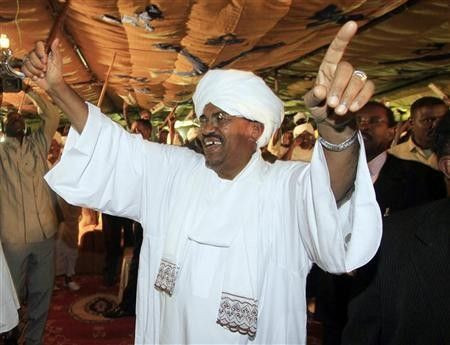Sudan's President Bashir to visit China

Next week, Sudan's President Omar al-Bahir will visit China on an official state visit. During the three-day trip, the two nations will discuss their traditional friendship, while Chinese President Hu Jintao and other leaders host Bashir in Beijing.
But this isn't a normal diplomatic meeting, because Bashir is no ordinary diplomat. The Sudanese leader is wanted by the International Criminal Court (ICC) for a number of serious charges, including genocide and war crimes.
Bashir is wanted in most countries in the world, and should he set foot in a nation that supports the ICC, he is to be arrested and detained and eventually put on trial for his alleged offenses.
The international community is outraged by China's invitation of the leader. Amnesty International is saying that China would be considered a safe haven for alleged perpetrators of genocide should the visit be allowed to happen.
Human Rights Watch officially asked China to rescind its invitation, writing that the trip would be an affront to victims of heinous crimes committed in Darfur.
In the past, a handful of nations have refused to let Bashir visit, bowing to pressure from human rights groups. Earlier this year, Malaysia signed on to the ICC, and Bashir cancelled his trip to that country.
But China is defending its decision, saying that there is no issue with talks between them and their perennial ally.
China has reserved its opinion towards the International Criminal Court lawsuit against President Omar al-Bashir, foreign ministry spokesman Hong Lei stated.
President Bashir has been visiting other countries on a number of occasions and has been warmly welcomed by those countries. It's quite reasonable for China to invite the head of a state that has diplomatic ties with China to come for a visit.
Since his warrant was issued in 2009, President Bashir has safely visited Eritrea, Egypt, Libya and Qatar - none of whom are signed up to the ICC -- as well as Kenya, which has signed the ICC treaty.
Bashir, who is deeply connected to the Sudanese civil war and the genocide in the Darfur region of western Sudan, has been under more international scrutiny in recent weeks. In advance of South Sudan's upcoming independence from Bashir's Sudan, the northern leader has sent in troops to occupy the border region of Abyei.
Despite promises to withdraw his troops and to let African Union peacekeepers secure the region, a wave of fighting has consumed the disputed North-South border. There are also reports of ethnically-charged attacks happening against Southern-leaning clans living in North Sudan. Should the recent demilitarization agreement between the two nations fail, many fear that another civil war may be the ultimate consequence.
© Copyright IBTimes 2024. All rights reserved.





















